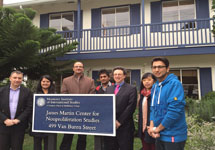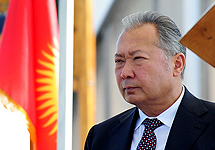
The CNS Fellows Spring 2015 program draws to a close with six graduates from Bulgaria, Pakistan, Columbia, China, and Yemen.
Government representatives address problems of securing radiological sources and radioactive waste management in Georgia.

An announcement on national television was made stating the Prime Minister & the entire government resigned.